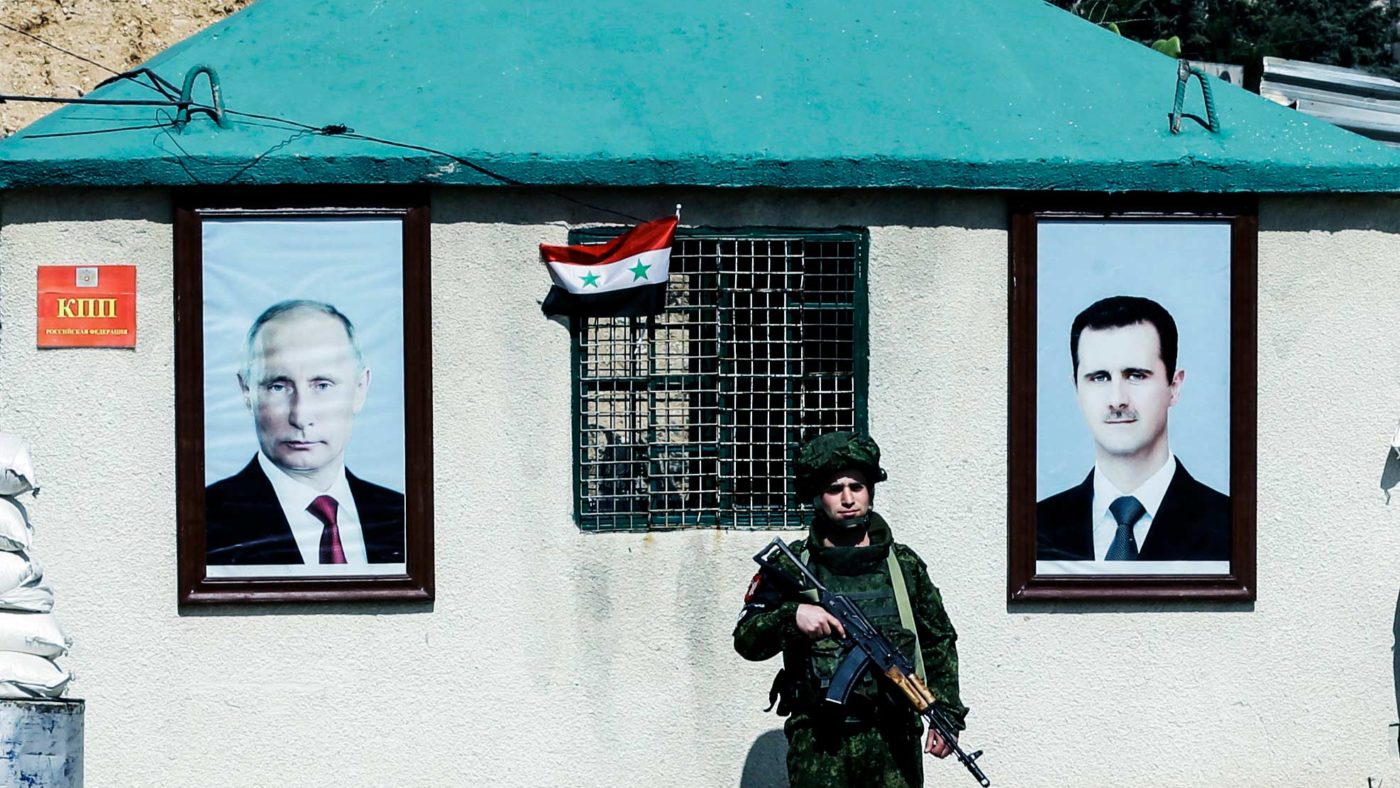“Ash-sha’b yuriid isqaat an-nizaam” was the chant that was born in Tunisia, spread throughout the Arab world and in March 2011, arrived in Dara’a, Syria. From there it became the slogan of the Syrian revolution. It translates to “The people want to bring down the regime”. This is what the Arab Spring was all about: the demos wanting the ability to choose who ruled over them.
Nine years later, the Syrian people are no closer to achieving that dream. In fact, it is looking further away than ever. For it seems more and more likely that the decision to bring down the Syrian government won’t be made at the ballot boxes of Syria, but from within the offices of the Kremlin.
The pandemic, coupled with the civil war, has made the government more reliant on its external allies, primarily Moscow. Russia has spent billions on helping the al-Assad government fight this war and now want it paid back in full. To say an economy ravaged by nine years of war and now the Covid-19 pandemic will find it difficult to pay back over $3billion in war loans is an understatement. The Syrian Lira is at an all time low, which has caused the savings of the Syrian middle class to evaporate, while Russian businesses are flooding into the country to reap the spoils of war. Oligarchs favoured by the Kremlin are already extracting wealth from Syria’s natural gas and oil reserves and investing in shipping.
Last week, Alexander Efimov, Russia’s ambassador in Damascus was elevated to the role of “special Syria representative” in order to address “incompetence” in the regime. As Israa Hazel pointed out, this is being compared by many Syrians to the position of “High Commissioner” employed by Syria’s former French colonial rulers. US Africa Command has even accused Russia of using its airbases in Syria, not just to help al-Assad wage war, but for Russian jets to support General Haftar’s forces in Libya’s civil war.
There is also speculation that Moscow is behind the anti-corruption drive in Syria, which has targeted the likes of Rami Makhlouf, a cousin of al-Assad and the country’s richest man, who owes his wealth to nepotism. Makhlouf owned an estimated 60% of the Syrian economy prior to the conflict and is thought to have only increased his wealth during the war. Some speculate Moscow are pulling the strings of this purge because both they and the Assad regime want Makhlouf’s wealth to help pay off Russia. Others argue that the Kremlin wants Makhlouf out the way so Russian businesses can fill the huge gap he’ll leave behind in the Syrian economy.
The situation is murky, but there are whispers that Moscow is tiring of the regime. In April, various articles were published by pro-Kremlin media outlets in Russia which were critical of Bashar al-Assad and the alleged corruption which sustains his rule. One even suggested a poll showed that only 32% of Syrians say they would vote for al-Assad if given the chance. Rumours are that Russia will prevent al-Assad from standing for re-“election” in 2021.
Officially, the Russian government denies any discontent with its Syrian ally – and after all the big problem for Russia is that, even if they did want to get rid of al-Assad, who would replace him?
Syria’s situation is tragic. But it can be hard to identify the greater, more painful irony: that so many Western “anti-imperialists” backed Russia’s endeavours in Syria, only for Russia to complete the economic and political colonisation of Syria; or that the al-Assad regime waged this war against its own people to cling onto power – only to surrender its sovereignty to the Kremlin, who will decide whether the regime stays or goes. That, of course, was the very decision that the Syrian people wanted to make all those years ago.
Click here to subscribe to our daily briefing – the best pieces from CapX and across the web.
CapX depends on the generosity of its readers. If you value what we do, please consider making a donation.


